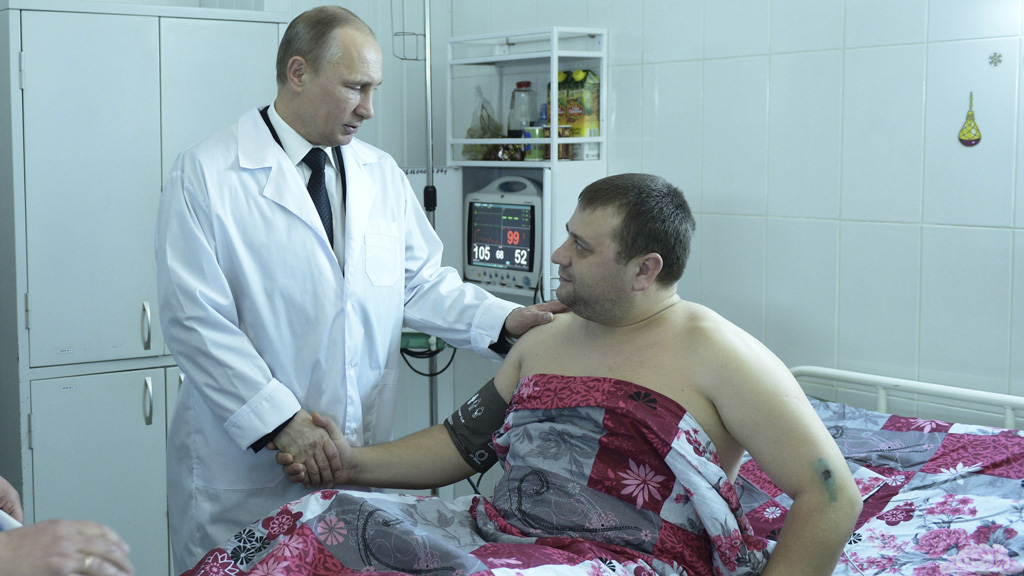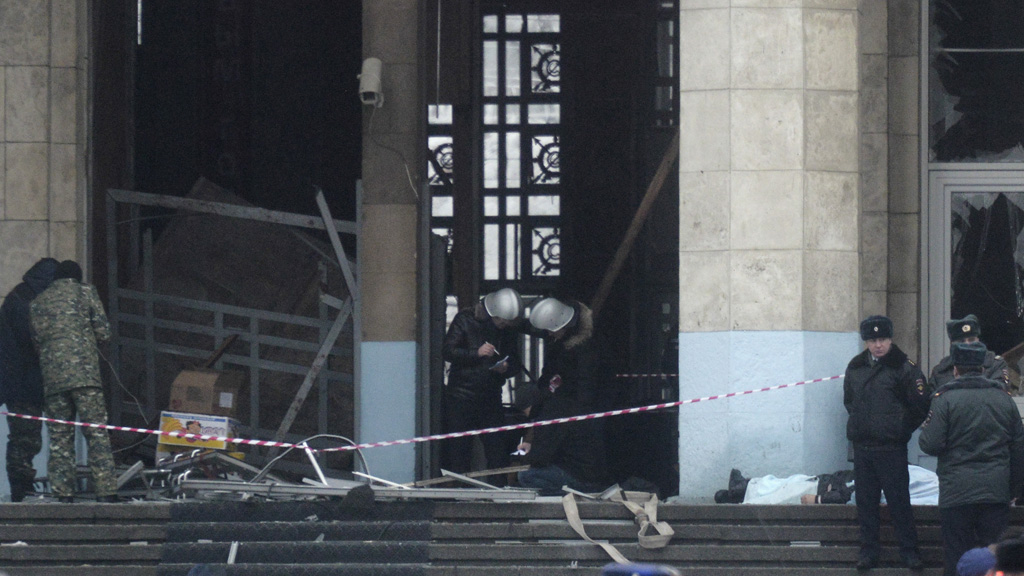Putin visits survivors of Volgograd blasts
The Russian president was filmed at the bedside of people wounded in the suicide bomb attacks that killed 34 people on Monday.

The pre-dawn visit saw Mr Putin place a bouquet of flowers at the spot where a city tram was blown up. A second bomber targeted Volgograd’s main railway station.
Some 34 people were killed and dozens wounded in the blasts, with 65 victims still in hospital.
In a meeting with officials from the interior ministry and the federal security service or FSB, Mr Putin said: “The abomination of this crime, that was – or crimes – that were committed here, in Volgograd don’t need any additional commentary.
“No matter what motivated the criminals’ actions, there is no justification for committing crimes against civilians, especially against women and children.”
In a televised address from the far eastern city of Khabarovsk, he said: “We will confidently, fiercely and consistently continue the fight against terrorists until their complete annihilation.”
Volgograd was known as Stalingrad between 1925 and 1961, and became famous as the site of a monumental battle against German forces in World War Two.
The authorities cancelled public celebrations on New Year’s Eve and have closed cinemas under a heavy security crackdown following the attacks.
No group has claimed responsibility, but the attacks come a few months after the leader of an Islamic insurgency in Russia’s south called for attacks in the run-up to February’s Winter Olympics in the Black Sea resort city of Sochi.

Suicide bombings have been common in Russia for years, but the insurgents have largely confined their attacks to the militants’ North Caucasus region.
Mr Putin’s international prestige rests on a successful Games in Sochi, which lies at the Western edge of the Caucasus Mountains and within the strip of land the insurgents want to carve out of Russia and turn into an Islamic State.
Olympic organisers have introduced some of the most extensive identity checks and other security measures ever seen at an international sporting event.
But the Volgograd bombings show how public transit in Sochi and sites away from the sports venues are vulnerable.
-
Latest news
-
Windrush scandal: returning to the UK after a forty year wait6m

-
Netanyahu ‘survival’ depends on ‘expanding war’ says head of Palestinian National Initiative5m

-
Proposed law change could strip parental rights from paedophiles5m

-
Hugh Grant settles privacy lawsuit against The Sun newspaper publisher2m

-
Post Office Scandal: what did top executive know?6m

-




